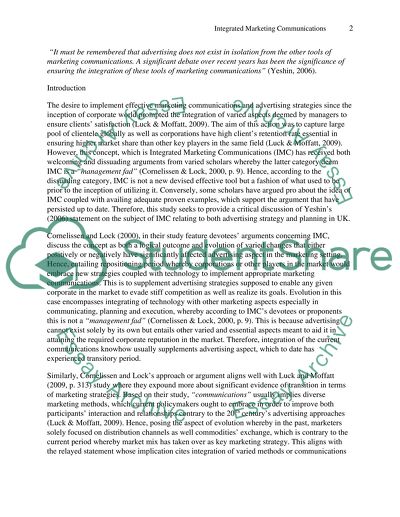Cite this document
(“A Critical Discussion of the Concept of Integrated Marketing Essay”, n.d.)
A Critical Discussion of the Concept of Integrated Marketing Essay. Retrieved from https://studentshare.org/marketing/1490912-a-critical-discussion-of-the-concept-of-integrated
A Critical Discussion of the Concept of Integrated Marketing Essay. Retrieved from https://studentshare.org/marketing/1490912-a-critical-discussion-of-the-concept-of-integrated
(A Critical Discussion of the Concept of Integrated Marketing Essay)
A Critical Discussion of the Concept of Integrated Marketing Essay. https://studentshare.org/marketing/1490912-a-critical-discussion-of-the-concept-of-integrated.
A Critical Discussion of the Concept of Integrated Marketing Essay. https://studentshare.org/marketing/1490912-a-critical-discussion-of-the-concept-of-integrated.
“A Critical Discussion of the Concept of Integrated Marketing Essay”, n.d. https://studentshare.org/marketing/1490912-a-critical-discussion-of-the-concept-of-integrated.


